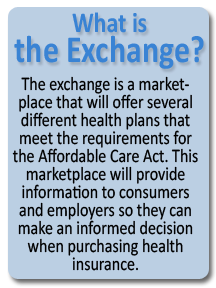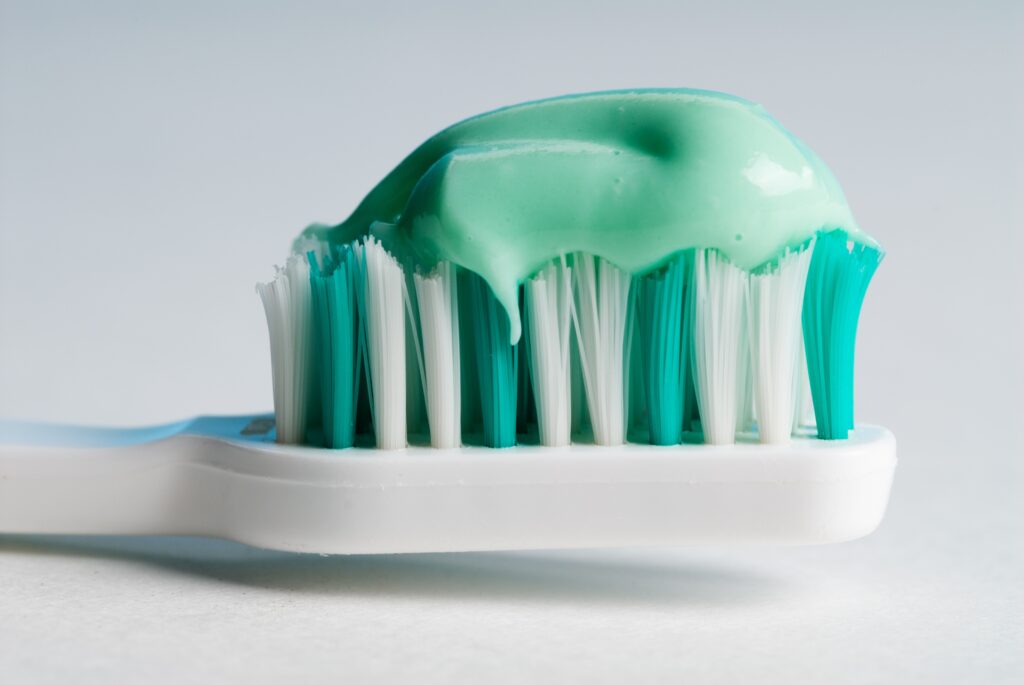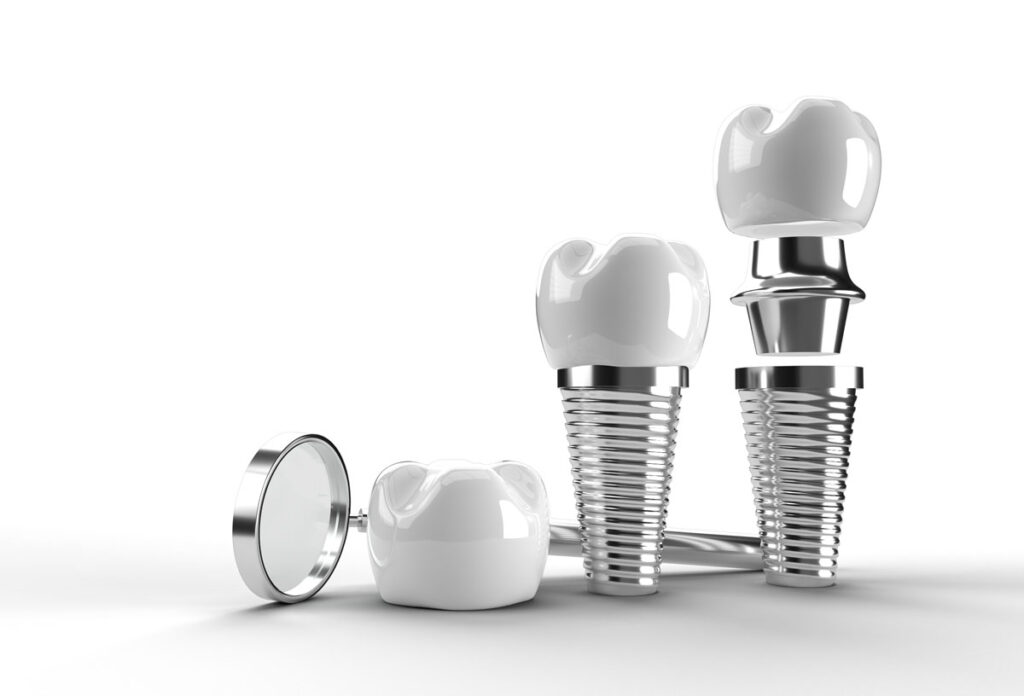The government shutdown has ended and it’s time for all of us to look ahead toward the changes coming our way in 2014 concerning, most significantly, Obamacare—officially called the Affordable Care Act (ACA). Open enrollment for the ACA began October 1, 2013, but with so many modifications to our health care, many people still have questions about how the new health care law will affect their dental coverage. We hope to address some of the common concerns about dental care under the ACA and a solution that is both helpful and affordable for everyone.
Is Dental Care Covered?
Pediatric Oral Care
Pediatric oral care is included as part of the minimum Essential Health Benefits (EHB) package for small groups and individuals both inside and outside of exchanges. This means it must be made available to children under 18 years of age, but they are not required to have dental coverage under the federal exchange. (There are a few states, however, that do require pediatric oral care under their state-run exchange). The EHB package may be included either as part of the medical policy purchased or as a stand-alone plan within the exchange. Each individual state will determine what this package will cover and what age limit to apply. The expectation is that in most exchanges it will cover the majority of services offered by the Children’s Health Insurance Program (CHIP)—such as exams, cleanings and fillings—for children 18 and under.

Some early supporters of the ACA, such as lawmakers and children’s health advocates, are concerned that families who don’t qualify for Medicaid or the Children’s Health Insurance Program may not be able to afford this.
If a stand-alone, pediatric dental policy is purchased from a federally run exchange, annual out-of-pocket expenses for families could be as high as $700 per child or $1,400 per family, according to Colin Reusch, a senior policy analyst with the Children’s Dental Health Project. Reusch also notes that the cost of stand-alone coverage will not count toward the medical out-of-pocket limit built into the health care insurance policy. Additionally, there will be no tax credits available to help pay for stand-alone pediatric dental plans like there are for medical premiums.
Adult Oral Care
Dental care for adults is not considered an Essential Health Benefit. Neither the Affordable Care Act nor most Medicare includes adult dental coverage. However, many exchanges (state or federal) will allow for non-pediatric dependents to be added onto the pediatric dental plan purchased. The benefits of the plan will likely not be as good for adults as they are for children.
An estimated 17.7 million adults could gain some type of dental coverage through the ACA, but overall the ACA will only reduce the number of adults who don’t have dental insurance by approximately five percent, according to the American Dentist Association. And those who will benefit from the ACA will still need some assistance considering there will not be any subsidies offered in conjunction with the new healthcare law.
What Will Happen to My Current Dental Coverage?
If you already have dental coverage, your plan shouldn’t change. Some companies may be cutting back on their dental coverage because of the increase in healthcare, but they should notify you of any changes before they are implemented.
[Update 11/20/2013: Since the writing of this article, your plan not changing is now up for debate. You should still be notified before any changes are implemented, but be aware that there are millions of people whose plans are changing as a result of the Affordable Care Act]
The UC Berkeley Labor Center predicts the Affordable Care Act will result in changes for some of the 150 million Americans who are covered through an employer-sponsored plan. Employers are not required to provide this coverage for their employees, but large employers with at least one full-time employee will be required to participate in the exchange or they will be subject to a penalty beginning in 2014.
If you find yourself in this situation or any other situation where you need to compromise your dental coverage, consider applying for a discount dental plan, which can be both cost-effective and readily available to you.
How Discount Dental Plans Can Help
With the many changes coming beginning January 1, 2014, and the millions estimated to either drop their dental coverage or lose it, discount dental plans can be a great help.
Discount dental plans will not be affected by the Affordable Care Act so current discount plan members will continue to receive discounts once the Act goes into effect, and new members will be able to receive the same rates offered to current members.
Anyone can be a part of a discount plan. The plans have low annual fees and huge discounts on dental work so they are affordable even with the increased costs of healthcare. These plans start immediately so there are no waiting periods and some discount plans even come with a free vision plan, which is another segment that is not covered for adults under the Affordable Care Act.







This is very useful information and should be common knowledge for anyone that may need healthcare in the near future.
so because i’m adult, if i need all my teeth removed and need dentures i’m on my own, so why bother even giving denta-cal. it’s apparent our government thinks american’s shouldn’t have the benefit of teeth to eat with or a smile their not ashamed of from no fault of their own, like taking a medication that destroyed their gums. I don’t see them cut from free dental care or free medical care. it’s clear they don’t care, only how it looks. I’ll be flushing my vote next time.
Dental care is expensive and getting more expensive with the new law. However, there are still other ways to receive good dental care at an affordable price. We sell discount dental plans at 1dental that you may want to consider looking into. These plans were designed to save you money. You can find out more information about them at http://www.1dental.com.
I am a disabled adult who lives in Florida, I collect disability and have Medicare, however no dentist in Florida accept Medicare and as such I am forced to live with dental issues that cause aggravating pain and force me to restrict my diet. I am not eating healthy and this escalates my disability, what am I to do?
I am so sorry to hear that. One option I can suggest is to consider getting a discount dental plan. By signing up for a plan, you receive great affordable discounts on dental care so you can go to the dentist and take care of those dental issues. For more information, please call us and a representative will be able to explain more about the plan and the benefits it can offer you in your particular situation. Our number is 800-372-7615. You can also visit our website and look around for yourself at http://www.1dental.com. We have a huge network of dentists so you will never have to face what you do now as long as you stay in network. Additionally, one of our representatives will be able to look up your zip code and tell you how many dentists you have to choose from in your area with our plan. You can also do this yourself at http://www.1dental.com. I hope this was helpful!
Where do I sign up for Obama dental insurance ?
You can sign up for Obamacare at https://www.healthcare.gov/. If you don’t find the prices you are looking for, consider one of our discount dental plans at http://www.1dental.com.
My mother has been struggling with her teeth all her life. (age 60) She lives in NH and has no insurance. (she cant afford it) she is in pain all the time, she has no confidence, Very depressed, will not smile for anybody, and having trouble eating. (her teeth break and fall out in pieces)
I feel so bad for her. Can someone find me a dentist who will except a reasonable down payment, and reasonable monthly payments? (that I can pay)
Is there any way she can get help from the Obama plan?
Thank you
Diana
Hi, Diana. Thank you for writing us. I’m so sorry your mother is going through this. While I’m not sure Obamacare is going to be much help in the way of dental, I can tell you about our discount dental plans. Our discount dental plans are affordable and offer our members great savings at the dentist. You may want to consider this as an option for getting your mother the dental care she needs. We have a large network of providers all over the U.S. When you call into our office at 1-800-372-7615 and speak to one of our representatives, they will be able to help you search for a dentist close to your mother that she would be able to go to with the plan. You can also search for dentists in her area on our website and see the different dental procedure prices we can get you with our savings plan. I hope this was helpful and that your mother gets the help she needs!
I do have both medcaid and medicare, live in SC. I don’t have dental coverage because of my age (over 21). Because of me being on a fix income amd a single mom, I don’t have 200+ to pay for dental. Will you tell me if the Obama dental insurane or something cheaper be est for me?
Our discount dental plans would be a great help to you and your family! Our membership fees can be paid either annually or monthly: $75.06/year for one member, $129.06/year for two members. or $172.26/year for three or more members. Broken down by month, this would be $6.95 for one member, $11.95 for two members, or $15.95 for three or more members. With your membership, you can receive great, affordable dental care at the dentists in our network that you can see on our website. Please give us a call and one of our representatives can give you more information: 1-800-372-7615.
According to ObamaCare… (what a joke this healthcare law is!)
>Dental care for adults is not considered an Essential Health
>Benefit. Neither the Affordable Care Act nor most Medicare
>includes adult dental coverage. However, many exchanges
>(state or federal) will allow for non-pediatric dependents
>to be added onto the pediatric dental plan purchased.
>The benefits of the plan will likely not be as good for
>adults as they are for children.
I really wish Obama had READ the “1700+ page Affordable Care Act” BEFORE SIGNING IT INTO LAW!! What kind of president enacts a LAW that will affect millions of here in America? A lousy one. He didn’t even read what we would get STUCK with. Moron. I am so disgusted in myself for ever voting for him, and the Democrats will never get a vote from me again.
SO — Dental care for adults is not considered an Essential Health Benefit?? Not essential?? I have dental issues. I am disabled. MediCare doesn’t cover dental. Qualifying for MediCal costs me $600/month. I can’t afford that either. BUT, there are healthcare benefits for the Homeless — full dentures, crowns, extractions, fillings. Free. Out of our tax dollars. They get FULL coverage. The rest of us are stuck with nothing. I can’t afford $120 per tooth to be filled OR extracted. This blows my mind. Dental care is not considered an Essential Health Benefit. I’ll bet you that Obama, his wife, and his 2 daughters get dental care. They also get to have 3 vacations a year??…on OUR tax dollars?? What a bunch of CRAP. I’ll bet their DOG gets better benefits..
Idiots…
We realize this is a sensitive topic at the moment. Thank you for sharing your thoughts. Please let us know if we can answer any questions about your dental health needs!
I’m sure he knew exactly what was in there. You have FAR too much faith in our current “leader”. The problem has nothing to do with him not knowing anything. Ignorance is always a choice. It’s caring that’s the real problem. Nobody gives a **** about the middle class, especially Obama.
Dear Ms./Mrs. Stepke, I read your complaints about dental coverage…and your criticisms about OUR President with whom I would gladly take over your choice of Mr. Bush. The answer for all of us is to accept what has been attempted by OUR President Barack Obama and add to it our concerns and wishes for dental coverage. You are WRONG when you say those benefits are given to the homeless. The only thing they get in California are teeth cleanings, and x-rays. NO fillings, crowns, dentures or anything your uninformed facts seems to tell you. I will always vote for a Democrat because they try to stand up for the poor and middle class. I am not rich nor unless I win some lottery will ever be. But, I do appreciate a man fighting tooth and nail to get healthcare for all Americans. If you have such hard feelings for the President then I am sure you have even harder feelings for the Congress who is blocking ALL attempts for OUR President to enact anything for people who are low or middle income.
Please write to the President and Congress and tell all of the Republicans who are BLOCKING funding for us to knock it off and give us something for all of the hard work we put in to run this country. At least medical, dental, food, and housing. That is not tooooooo much to ask for as I put in those 9-5 days working for 8.50 an hour and ZERO health benefits what-so ever before “Obama Care”.
Thank you
Again, we realize this is a sensitive topic at the moment. Thank you for sharing your thoughts. Please let us know if we can answer any questions about your dental health needs!
At least President Obama has made an effort to provide medical coverage for American citizens. Any new program will require modifications to add, remove or clarify parts of it. Maybe if there was more suggestions to improve it, rather than constant criticism, all will be able to benefit. There has been much talk about this subject to no avail, until President Obama made the effort. Kudos to him! Keep up the good work!
Hi there. I came across your post and I am curious about the “homeless benefits.” To whom would I speak with? I too am disabled at 30 yo and need true dental assistance. I hope that we are able to speak soon. Thank you and God Bless! ~M
We don’t have homeless benefits, per say, but we do have a great discount dental plan at a low monthly cost. When you pay for the membership, you will receive great discounts at the dental office. You can find out more on our website. We hope this was helpful for you and you find a plan that best fits your needs. If our plan is not a good fit, you might consider looking online for free dental care events in your community. Some communities offer events like that throughout the year for individuals who cannot afford dental care. It’s a great service that is so helpful because it allows individuals to get their teeth cleaned when they wouldn’t have been able to before then.
Ah yes, what a joke! How funny that healthcare is reaching more people than ever before, even if it’s far from flawless. Better to stick with the Republican’s plan – The No Plan – which really is no laughing matter..
Dental care has never been a part of assistance to anyone, before the Care Act or after. Yes, it would be great to get it started to help…The major problem in the past, was when aid is given to adults and they don’t show up for an appointment, they loose the chance to go back. More times than not, there is no dentist available to take the assistance patience without going to a major city. the CARE ACT was not going to get dental care, as it would have not allowed the Care Act to be signed. Someday maybe…
I am looking for dental insurance for my self i do have medicaid but when i call them they told me they only pay for children not for adult i think that wrong they should pay for adult to as well children i don’t think discount plans or saving are not that great b/c i live on ssdi and they don’t give me enough money to live on plus i am on fix income to i looking for a plan pays 100% i have really bad teeth where i can pay them every month i live indiana most my state are discount plans or savings plans and i want no waiting peroid to
Unfortunately, you won’t find a plan that pays 100 percent of your dental care. Our discount dental plans aim to knock the price down as much as we can to help individuals and families pay for their dental care. If you haven’t seen our plans, please visit our website. Our plans do start immediately.
I hope our dental plans can be a help to you, or that you find an insurance plan that meets your financial needs.
Once I’m signed up for the dental plan, would i contact the doctor directly to discuss payment options, or is that something you can help me with? I would like to know, before signing up, if the doctor is able to accommodate payment arrangements or financing on dental work… :/
Thank you
– D. Cooper
We can show you how much you will be saving with our dental plans at your dentist. However, for payment arrangements and financing, you’ll need to talk to your dentist to see what their policy is for that.
have question…my job provides us max of $2000 for dental care…(delta-dental)
they insist on extracting all by teeth due to peridontal disease…I have all 32 and yes some may need to be extracted and they will not give me a partial and wants to charge max $ 9,000 for everything…mine
you it will cost me $7000…that’s ridiculous….will there be a problem with having delta and you discount plan and is there max also? i.e $2000 per year.
No, there is not a limit of usage with our discount dental plan. If you are wanting to use both our discount dental plan and delta dental, you will need to speak with your provider and see if that is an option for you.
I once foolishly thought brushing and lack of cavities was enough and did not see a dentist for over 10 years. When I finally did go, it was a shocker. One dentist told me I needed six teeth removed due to severe gum disease/gums had receded;, deep pockets, etc. I got a second opinion, seeing a very good periodontist, who performed the deep scaling/debridement. I lost only two teeth initially. (A few years later, an inner gum infection flared and I lost another. If I had had the funds, I would liked to have had an implant done. It was the very back tooth, so I had an extraction.) But I am so glad I went for that second opinion and was able to save many of the teeth the original dentist said had to go.
I read a lot of the Dental Insurance adds. I’ve recently retired and I am looking for some type of dental insurance that will cover implants too. Haven’t seen a single one yet. Is there such a plan???????????? Also why don’t dentists offer a discount for patients that no longer have dental insurance. I can’t understand how a dentist can charge say $100.00 for whatever the problem but then accept $40.00 from the insurance coverage. Why not have a middle ground, say $60.00 if not insured? Thank you………….
Thank you for sharing your thoughts. Our dental plan does include a discount on implants. We can get you a 20% discount off implants. You can see our full fee schedule here https://www.1dental.com/careington-dental-plan/ when you type in your zip code to see what dental procedures are discounted. If you have further questions, please give us a call at 1-800-372-7615 and one of our representatives will be able to assist you.
“Dental care for adults is not considered an Essential Health Benefit.” WHAT A JOKE!!!
I am in serious need of Dental care. My teeth have all broken off and I am Diabetic. My teeth are contiually getting infected and will probably be the cause of my demise as I cannot afford to have the surgery necessary to remove them. I am on SSD and also have a heart condition. Medicare will not pay for my teeth to be removed, but will continue to spend 6 times as much on hospitalization for the infections and other medical problems caused by my bad teeth. My cardiologist even wrote them a letter explaining the urgency of the situation and they still denied it. Our gov’t is penny wise dollar stupid.
I’m so sorry to hear about the trouble you have been having with your teeth. Please give us a call at 1-855-760-4154. One of our representatives will be able to tell you about our dental plan. If you find that that would be helpful for you, they can walk you through the process of signing up and finding a dentist that can give you the affordable care you need. For more information about our plans and cost, please visit our website.
I am blessed to have medical through my employer. We used to have a dental tier-it went away a couple of years ago, leaving us with no dental coveage for our kids.
Is our medical plan supposed to cover general dental for our kids due to Obama care? I have one child under the age of 18.
Thank you for writing us! Obamacare requires pediatric dental care to be offered on the exchange but you are not required to have it. I would recommend talking to your medical provider about dental coverage for your kids to see if it’s already provided on your plan or if it’s available for you to add on. If it’s not or it’s too expensive for you, please visit our website to check out our discount dental plans. This is not insurance, but it can offer you significant savings at the dentist for you and your kids. Your kids’ dental care is vitally important so you definitely want to have some type of coverage for them. We hope this was helpful for you!
Does your plan cover oral surgery and dentures? I have minimum dental insurance of $1500.00 which I used most of it last Friday on oral surgery on an abcessed tooth and then was told the additional cost would be $3,960.00 plus my dentures. My autoimmune disease has totally destroyed my teeth and the one income I have is my SSA and SSI. Need help!!!
Hello, Pamela, thank for writing to us. Our plans do offer discounts for oral surgery and dentures. Please visit our plans page, enter your zip code in the search box and look through the sections on Oral Surgery and Prosthodontics (Dentures). It will show you each procedure’s typical cost and what our plan can save you. Also, feel free to give us a call at 800-372-7615 if it would be helpful to have someone walk you through the fee schedule or if you have any questions. One of our representatives can even assist you in signing up for the plan by phone if that would be helpful.